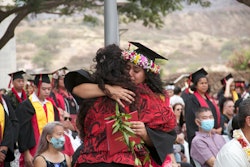Mention “best-seller” and author Amy Chua in the same breath and, chances are, a person’s thoughts turn immediately to her controversial parenting memoir, Battle Hymn of the Tiger Mother. Indeed, national backlash has shadowed Chua for months since publication of the book, which describes her rigid parenting style in what she loosely calls “the Chinese” way.
But long before Tiger Mother infuriated tens of thousands of Americans, and long before Chua’s parenting tactics were blasted by bloggers and analyzed by Oprah, she already was writing books in which race and ethnicity took center stage. Like Tiger Mother, Chua’s previous scholarly books explore themes that question the effectiveness of so-called Western ways.
“It’s important in this era of specialization that we have writers and thinkers willing to take on broad topics to start a dialogue or continue one,” says Dr. Glenn Altschuler, the Thomas and Dorothy Litwin Professor of American Studies at Cornell University.
Adds Dr. Andrew Bacevich, a Boston University professor of history and international relations: “Books like Chua’s are useful because they invite readers to contemplate.”
In World on Fire: How Exporting Free Market Democracy Breeds Ethnic Hatred and Global Instability, Chua, the John M. Duff Jr. Professor of Law at Yale University, contends that capitalism and representative democracy—keystones of American society—have not necessarily lifted parts of Latin America, Asia and Africa out of poverty and oppression.
Published in 2002, the book cites numerous examples of nations plagued by racial strife, violence and political uncertainty, including Bolivia, Indonesia, Russia, Sierra Leone and Zimbabwe.
Chua again examined racial diversity in 2007 with the publication of Day of Empire: How Hyperpowers Rise to Global Dominance — and Why They Fall. The book chronicles those civilizations that have attained world dominance because of their military and economic muscle: the Persian Empire, the Roman Empire, China’s Tang Dynasty, the British Empire and the United States. These and other hyperpowers owed their success and status in part to acceptance of racial and religious minorities who had been excluded by other societies but whose skills and labor benefited their adopted homelands.




















